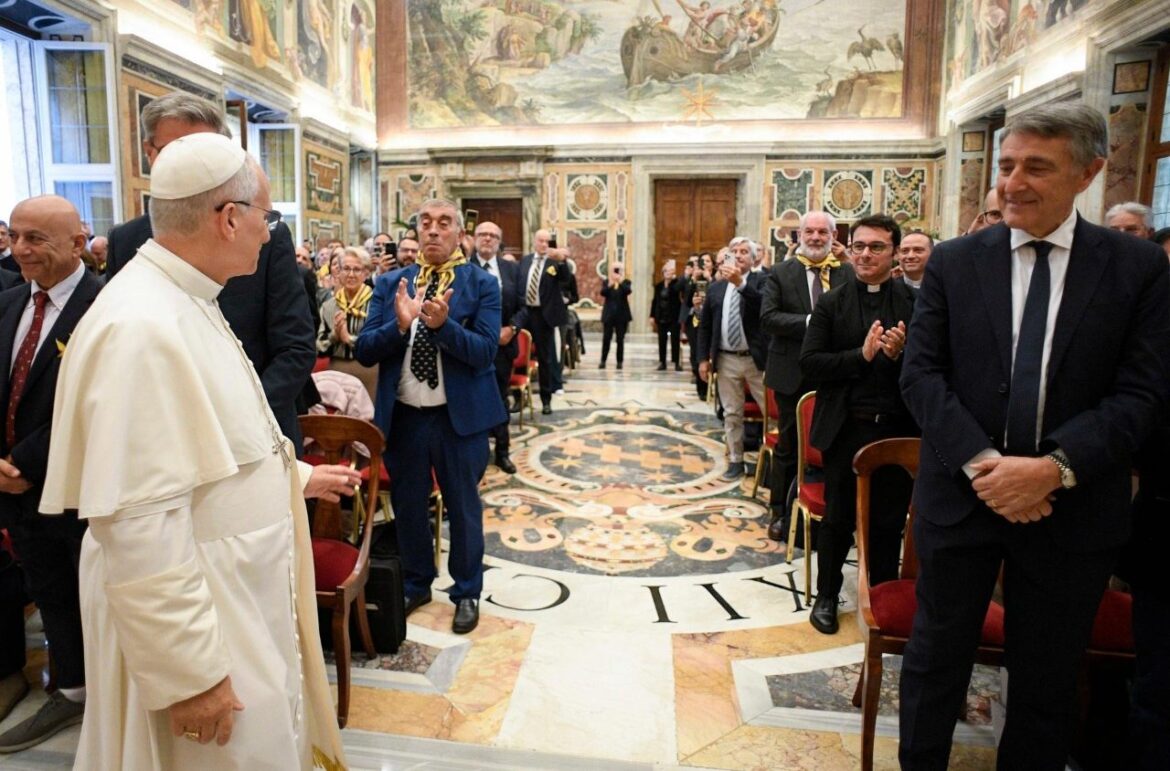
Pope Leo XIV condemns usury as a grave sin that enslaves the poor and corrupts the human heart, he calls for a renewed commitment to justice and mercy and praises the Church’s anti-usury efforts as a sign of hope in the Jubilee Year.
By Linda Bordoni
Pope Leo XIV has denounced the practice of usury as a “grave sin” that destroys lives, families, and societies, calling it a “corruption of the human heart” that exploits the vulnerable and undermines human dignity.
Speaking to members of Italy’s National Anti-Usury Council on Saturday, the Pope thanked them for their thirty years of commitment to assisting victims of usury and promoting ethical economic practices. He warned that usury, both at the individual and global levels, “remains a painful and ancient wound” that continues to afflict the poor and marginalised.
Usury is not merely an accounting issue
“The phenomenon of usury,” the Pope said, “points to the corruption of the human heart.” Quoting the prophet Isaiah, he recalled that Scripture condemns exploitation and calls believers to “break the chains of injustice and set the oppressed free.”
“How far from God,” the Pope exclaimed, “is the attitude of those who crush people until they become slaves! Usury is not merely an accounting issue—it is a grave sin that can destroy families, consume the mind and heart, and even lead people to despair or suicide.”
He warned that usury often disguises itself as help offered to those in economic hardship but soon “reveals itself for what it is: a burden that suffocates.” The consequences, he said, fall especially on “those already fragile, such as victims of gambling addiction or families facing medical or financial emergencies.”
Entire peoples can be enslaved
Pope Leo XIV extended his warning beyond individual cases, condemning “usurious financial systems that can bring entire peoples to their knees.”
Citing the Catechism of the Catholic Church, he reminded listeners of those “who in commerce engage in usurious and mercantile practices that cause hunger and death among their brothers and sisters in humanity.” Such actions, he said, create “structures of sin” and carry “grave responsibility.”
He asked pointedly: “Are the less fortunate not human beings? Do the weak not share our same dignity? Are those born with fewer opportunities worth less as human beings, destined merely to survive?”
“Our answer to these questions,” the Pope affirmed, “determines the value of our societies and our future. Either we reclaim our moral and spiritual dignity, or we fall into a pit of filth.” (Dilexi te, 95)
A mission rooted in mercy
Thanking the Anti-Usury Council for its ongoing service, Pope Leo XIV described its work as a “sign of hope” in this Holy Year, fully aligned with the spirit of the Jubilee of Mercy.
Reflecting on the Gospel story of Zacchaeus, the Pope said that conversion—like that of the tax collector—is possible when one encounters the gratuitous love of Christ. “When profit becomes our goal,” he said, “others lose their face and become objects to exploit. And in the end, we too lose ourselves and our souls.”
“The conversion of those who commit usury,” he added, “is as important as our closeness to those who suffer because of it.”
Concluding his address, Pope Leo XIV encouraged those engaged in the fight against usury to persevere with courage and unity, supported by the Church’s pastors and inspired by the Gospel.

